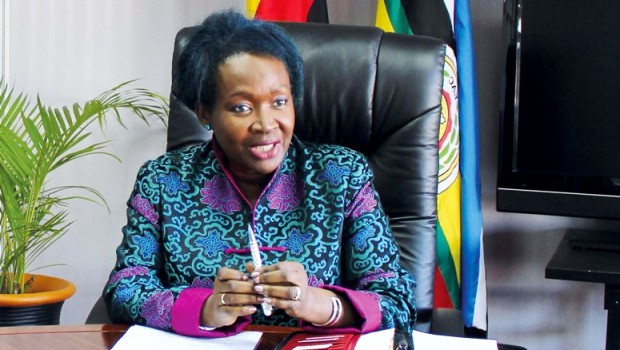Former finance minister Maria Kiwanuka has urged African governments to make more investments in the agriculture sector and cut the exportation of raw materials.
Ms Kiwanuka was on Monday addressing a high-level panel at the 12th African Economic Conference in Addis Ababa, Ethiopia, where delegates among others discussed how African governments can transform the agriculture sector.
“More investments in agriculture must be made. We have no excuse to continue exporting raw materials to other countries, yet we can develop our own capacities to industrialise and produce finished agricultural products,” Ms. Kiwanuka, who is now Senior Presidential Advisor on financial matters, said.
Organized by the African Development Bank, the United Nations Development Programme and the United Nations Economic Commission for Africa, the 2017 African Economic Conference is taking place December 4-6 in Addis Ababa, Ethiopia, under the theme ‘Governance for Structural Transformation’.
And during deliberations the delegates noted that with over 70 percent of Africans making a living through agriculture, it was imperative to develop better agricultural transformation and rural development strategies.
The high-level panel also reflected on the theories and practices for structural transformation in Africa, and assessed the leaders’ role in undermining good governance and development.
David Booth, the Principal Research Fellow, Politics and Governance Programme at the Overseas Development Institute, argued that although there is no textbook solution to development, leaders should have the courage to experiment with different approaches to development.
“So many development models have been employed across the world; some have failed and others have worked. Therefore, we now have a clue as to what can work and what cannot. To enhance targeted problem-solving efforts, African governments need to try out different things and learn from their own experiences,” he said.
Dr. Ibrahim Elbadawi, Managing Director of the Economic Research Forum, added that the youth in Africa are largely unemployed because their education background does not match job requirements in the private sector.
He urged governments in Africa to take youth unemployment as a serious matter, saying it was a disappointment that many African countries have failed to tackle youth unemployment through entrepreneurship programs.
“This focus on white collar jobs has to end if the continent is to realise an end to widespread youth unemployment. On top of readjusting the education curriculum, there is need to advance entrepreneurial skills ahead of a mentality that focuses on finishing school to look for jobs,” Dr. Elbadawi said.
The Mo Ibrahim Index 2017 states that although a third of the countries on the continent are driving overall improvement in governance, many fail to build on prior progress.
In 2010, the African Development Bank adopted the Good Governance Policy to support the continent’s governance reforms.
The policy seeks to strengthen good governance by providing the basis for defining guiding principles for delivering results and achieving impact, as well as enabling environment for private sector development, economic competitiveness, debt management and, public expenditure management among others.







